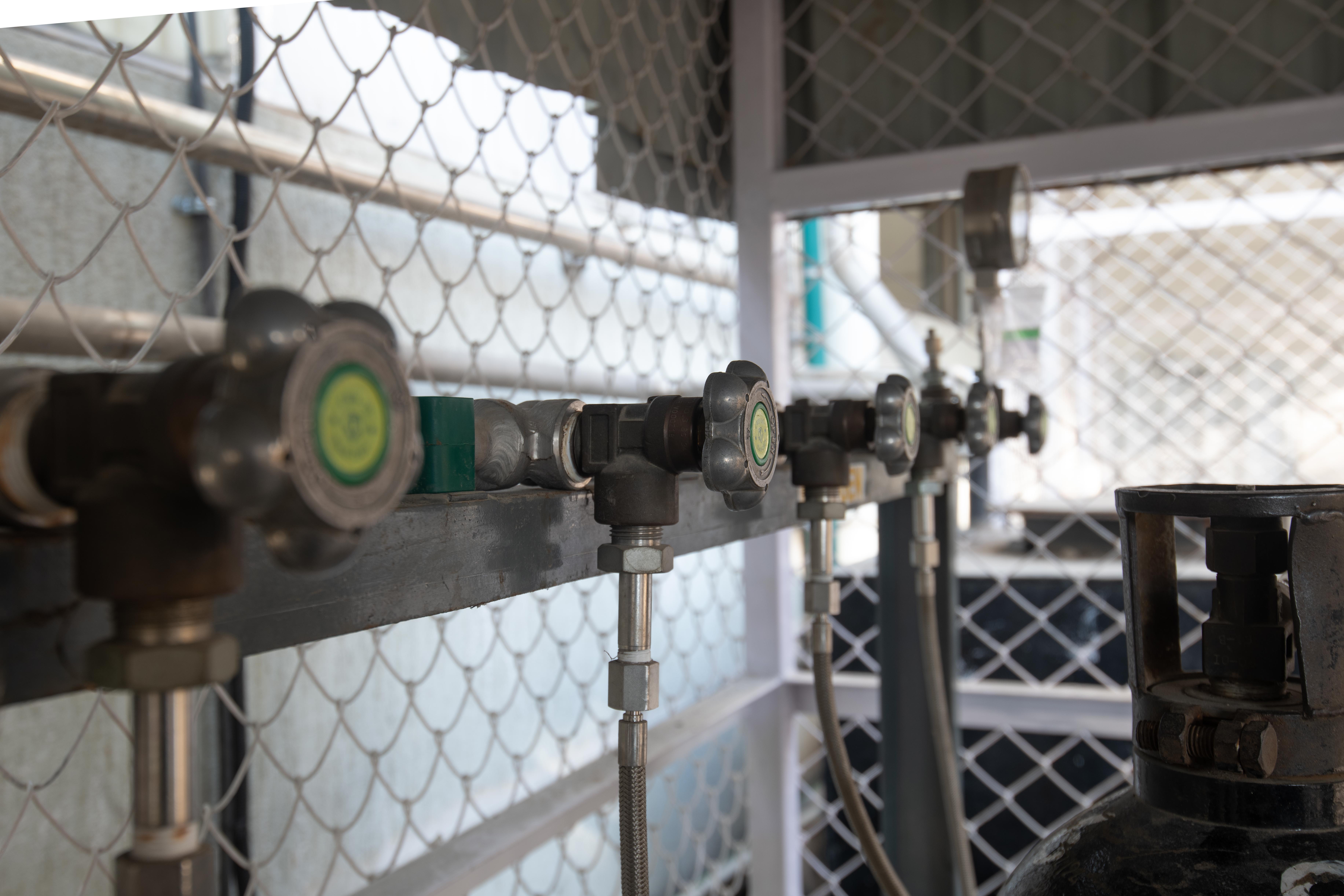Gas Safety In Laboratories
Scientists use various types of gases in their laboratories. We should handle gases in laboratories with great care, as mishandling may lead to serious injuries to lab workers and may destroy expensive chemicals and equipments. Therefore, every lab worker must follow the safety instructions.
SAFETY MEASURES
- Trained persons must work with gas cylinders. Train all new personnel in safe handling of gas cylinders before using them.
- Workers must follow safety instructions to avoid any injury and damage.
- Do not smoke in the lab, it can lead to an explosion.
IDENTIFICATION
- Mention the contents of the gas on the cylinders.
- One must not rely on the color of the gas cylinder alone for its identification, because it may differ across the suppliers.
HANDLING OF GAS CYLINDERS
- Use gas cylinders in working fume hoods.
- To open a gas cylinder, use tools or wrenches provided by the supplier. Other tools may destroy the valve of the cylinder.
- Do not use oil for the lubrication of valves because it can cause an explosion.
- Use valve protectors to protect valves of gas cylinders.
- Do not use the valve of a cylinder to lift or move the cylinder, it may get damaged.
- Open the cylinder valves slowly and with great care.
- Never leave the valve open when not in use, it causes accumulation of moisture in the cylinder.
- Never heat a gas cylinder to increase its pressure.
- There should be no pressure on the regulator when it is not in use.
- Attach regulators to the gas cylinders, especially for compressed gas cylinders.
- Use valve instead of a regulator for turning gas on and off.
- Handle even the empty cylinders with care.
SAFETY DATA SHEET (SDS)
A Safety Data Sheet (SDS) should be available for information relating to uses and toxicity.
FIRE EXTINGUISHER
- Fire extinguisher equipment must be readily available in laboratories. And all the workers of the laboratory must know the placement of extinguishers & how to use it in case of any emergency.
STORAGE OF GAS CYLINDERS
- Ventilate the storage site of gas cylinders & keep the site dry and cool.
- Do not store gas cylinders in direct sunlight.
- Do not store cylinders in places where heavy objects may strike with the cylinders and explode.
- Store the gas cylinders away from electrical circuits, fire, and sparks.
- Do not store the gas cylinders in public hallways and other unprotected areas.
LEAKAGE IN CYLINDERS
- Do not use soapy water to detect any leakage in a cylinder.
- On observing a leakage, immediately contact the supplier.
GAS GENERATORS
- Where possible use gas generators instead of gas cylinders, as generators only generates the required amount of gas.
- Generators also provide a constant supply of gas to labs and convenient to use, as it does not carry large volumes of gas.
FUME HOODS
- Use fume hoods when working, as fume hood exhaust the excess and harmful gases exhaust outside the laboratory.
- With fume hoods, gases do not accumulate in the lab, which otherwise is dangerous for the health of lab workers.
Finally, whether you are constructing a new plan or renovating an existing one, plan gas safety from the lab design phase.
Comments are closed.











